
Watch out, Audi! How Lexus staged a sales comeback in 2023 off the back of updated Lexus RX, NX and UX SUVs
The cold, hard facts of the 2022 sales data were not good for Lexus. The brand...
Browse over 9,000 car reviews
.jpg)
We need to ban cars more than 10 years old. Give me one reason more important than the life of a child.
The results of London’s hardcore vehicle emissions restrictions program have shown a dramatic reduction in pollutants people are breathing in the city, where according to the government, 4000 lives a year are lost due to toxic air.
So does Australia also need to bring in a version of the UK’s strict emissions mandate for its major cities?
As the owner of a 1950s American car and a passion for old school V8 hot rods, my initial reaction is “hell no”, but as the father of two small children I’d like to see a low-emissions zone implemented in Sydney where I live, immediately.
The UK’s Ultra Low Emissions Zone (ULEZ) was introduced in inner London in 2019 and extended to central London in 2021 and expanded again in August this year to outer London - an area covering 1253 square kilometres and home to 5,395,000 people. The ULEZ is operational 24 hours a day, 356 days a year.
The radius of the ULEZ from the centre of London (let's say Big Ben at the Houses of Parliament) is about 30km.
So for an Aussie comparison that’s about from the Sydney Harbour Bridge to Palm Beach in the north and sweeping in a 30km radius through to Blacktown in the west and all the way to Engadine in the South.
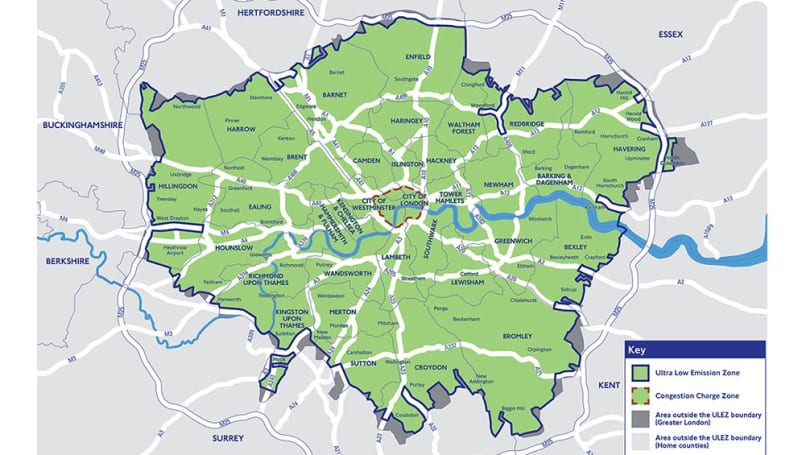
For those in Melbourne it’s the same as Fed Square to Doncaster in the East and sweeping all the way around to Werribee in the west. Or if you’re in Brisbane that’s the equivalent of the CBD to Deception Bay in the north and out to Ipswich in the west.
London’s ULEZ restrictions state that all vehicles must comply with emissions levels or pay a charge. This means petrol cars must meet Euro 4 standard which is generally a car registered after 2006; and diesel cars must be Euro 6 compliant which is typically a car registered after 2015.
The same rules apply for commercial vehicles such as vans, and motorbikes must also comply.
For Londoners with cars that don't meet these standards a charge of £12.50 (A$23.66) is imposed on the days you drive them.
The good news for old car enthusiasts like me in London is that if your vehicle is over 40 years old, then it's officially considered historic and therefore exempt from the ULEZ charge. But, if you own a Nissan GT-R R33, a 1992 Porsche 911 or anything made after 1984 then you’ll have to pay the $23.66 every day you drive it.
So it is not just enthusiasts that the ULEZ hurts, but people who own older cars because they can’t afford a newer one that complies with the Euro 4 and Euro 5 requirements. The British government is offering to buy back Londoner’s older cars, but offering a maximum of £2000 (AUD$3784). Don’t forget you still need to pay for new rego, too.
A quick look at UK car listings on gumtree.com revealed just six cars for sale in London for between £1000-£2000 and one of them was actually a scooter that had either listed incorrectly or by somebody who knew exactly what they were doing.
Cleaner air is something everybody wants but in the case of London’s ULEZ it appears to be coming at the cost of those who are already doing it hard.
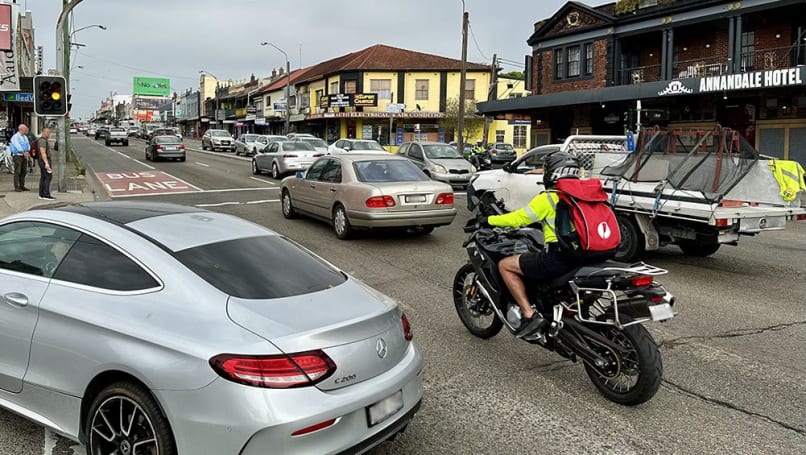
To quote the CarsGuide scribe the great Dave Morely: “Nobody chooses to drive a shitbox”.
The line was in response to the delight of somebody revelling in the idea of the Australian government wiping the roads clean of old cars as part of its ‘cash for clunkers’ scheme back in 2013.
The response highlights the truth that older cars are an available form of mobility for so many of our most vulnerable community members whether they are mums and dads who need it for work and school runs, to young apprentices who need it for their jobs, and older people who aren’t easily connected to public transport.
The Mayor of London’s 95-page report released in February this year applauds itself for “an average reduction of 74,000 polluting cars every day seen driving in the zone".

But how many of those 74,000 ‘polluting cars’ were replaced with newer cars? And let’s face it - all petrol and diesel cars regardless of their age are polluting and it’s only a matter of time before these are also “too old”.
How many families had to get rid of their car because it was too old but couldn't afford a newer car, even with the buy-back scheme?
How would Australians deal with a similar ULEZ program in their cities? Remember that it’s the entire city and surrounding suburbs, not just the CBD.
Still, the results of the report can’t be ignored. In the first 10 months of the ULEZ operation, nitrogen oxide levels in Central London dropped by 35 per cent. The new report following the expansion of the ULEZ found nitrogen dioxide NO2 levels in Central London had been reduced by 46 per cent.

The Mayor of London Sadiq Khan heralded the success of the ULEZ.
“The evidence from this landmark report is clear - the ULEZ works,” he said.
“This is beyond dispute. It has already reduced toxic air pollution by almost half in central London and by over a fifth in inner London, transforming the quality of air for four million Londoners.
“But there’s still more to do. Toxic air is a matter of life and death, with around 4000 deaths in London attributed to air pollution in 2019. It’s also stunting the growth of children’s lungs and causing people to develop life-changing illnesses, such as cancer, lung disease, dementia and asthma.

“With the majority of deaths attributable to air pollution in outer London, it’s vital that we expand the ULEZ London-wide. As Mayor, I simply won’t accept that the five million people in outer London shouldn’t be able to benefit from the same life-saving health impacts that ULEZ has already brought to the rest of our city. Everyone has the right to breathe clean air.”
And that’s the part which gets me right between the eyes - that a ULEZ is saving lives. And as a father whose daughter goes to daycare on a busy street and a son whose school is on a main road, then I don’t think we can bring in a ULEZ with a 30km radius to our major cities fast enough.
And if you disagree with me then give me one reason that’s more important than the life of a child. I’m waiting…
'Oh but you’re a motoring journalist and a car enthusiast how can you say this?'
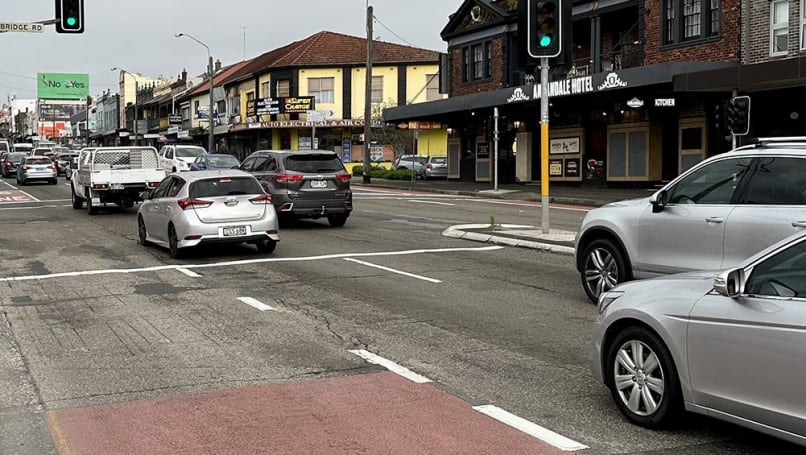
It’s true, I love cars and I feed my family by reviewing vehicles, but it’s not cars I have the beef with - it’s the fuel we feed them that’s the problem. I’ll be all for a combustion engine that doesn’t spew poisonous gas, and I think if it can be built, sports car makers like Porsche will work it out - they’re survival depends on it.
We know the fuel our petrol and diesel cars run on produces toxic, poisonous gases and if somebody came up with a patent for the gasoline powered automobile today, there’s no way it would get through.
But combustion engines have become so ingrained in our world over the past 120 years playing such a fundamental role in every aspect of our lives from mobility to progress that we’ve given them a free pass to continue to exist. Besides, we've become so reliant on them that quitting cold turkey wouldn’t be good either.
London's ULEZ is even having an affect on the cars we are now seeing in Australian showrooms. The new Ford Ranger plug-in hybrid was created in response to the tightening emissions restrictions in Europe, for example.

We need to begin a ULEZ in Australia the same way London did and start small before expanding it further. And rather than making life harder for those who can’t afford a newer car the government should look at offering more support either through offering reduced prices of ex-fleet cars or more in the way of a financial leg-up into another vehicle.
This giving up petrol and diesel cars thing sounds extreme, but I used to be a heavy smoker and take it from me - I have never regretted my decision to quit.



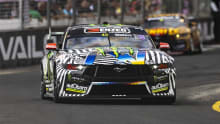
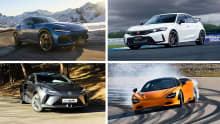
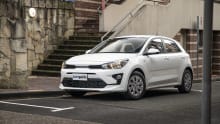
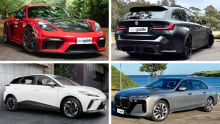
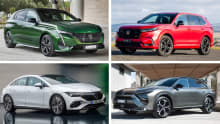
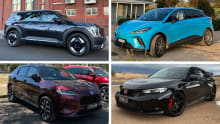
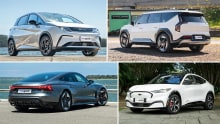
Comments